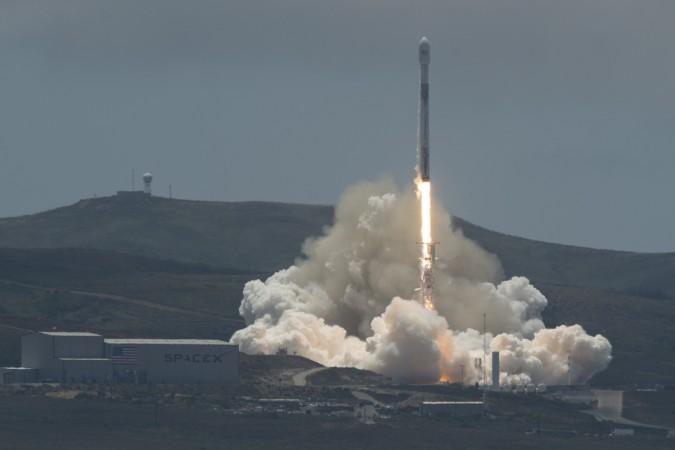
According to SpaceX's recent federal regulatory filing, Elon Musk's aerospace company is probably going to make a Falcon 9 rocket booster land on Vandenberg Air Force Base in California. If the company manages to achieve that, this would be the first time ever that a Falcon 9 rocket will stage at a new onshore recovery pad at Vandenberg. This could be a new step towards achieving the goal of retrieving and reusing the boosters set by SpaceX.
As per the filing, SpaceX has already submitted an application to the Federal Communications Commission. If the FCC approves the application then only the firm will be able to go ahead with its plans to use radio frequencies for communicating with the rocket following its landing. SpaceX has specifically requested the FCC to permit them to use a ground antenna for sending across the commands to a Falcon 9 booster after landing at Vandenberg, which may take place by the end of this year. The application doesn't mention any specific mission for this landing procedure, which is supposed to take place at Vandenberg Air Force Base. However, it does specify a time period, which is from September 5 to March 5.
The company has already developed a circular concrete landing zone close to the launch pad of Falcon 9 at the California military base. It looks similar to the rocket landing zones of Cape Canaveral Air Force Station.
As of now, Elon Musk's SpaceX has managed to successfully land one of its Falcon rocket stages 25 times. While 14 out of the 25 times, the rocket's first stage landed on a sea landing platform in Florida and California, the other 11 times, the rockets landed at Cape Canaveral.
This is going to be the first time that SpaceX would make an attempt to land a rocket at Vandenberg. Air Force, the Federal Aviation Administration, NOAA, and state authorities have already given their permission to SpaceX to go ahead with their landing plans after conducting thorough environmental and safety reviews. The authorities have examined how the landing would affect the wildlife and natural resources around; including seals, which could panic hearing the sonic booms.
The FAA is left to issue a launch and landing licenses to SpaceX.
Onshore rocket landings are far more pocket-friendly for SpaceX and also they save the engineer's time for inspecting and refurbishing the boosters for upcoming missions.
According to reports, the next Falcon 9 launch is slated to take place on July 20 at the California military base. It is expected that SpaceX will recover the first stage of the rocket from this mission on a drone ship located at the Pacific Ocean.

















